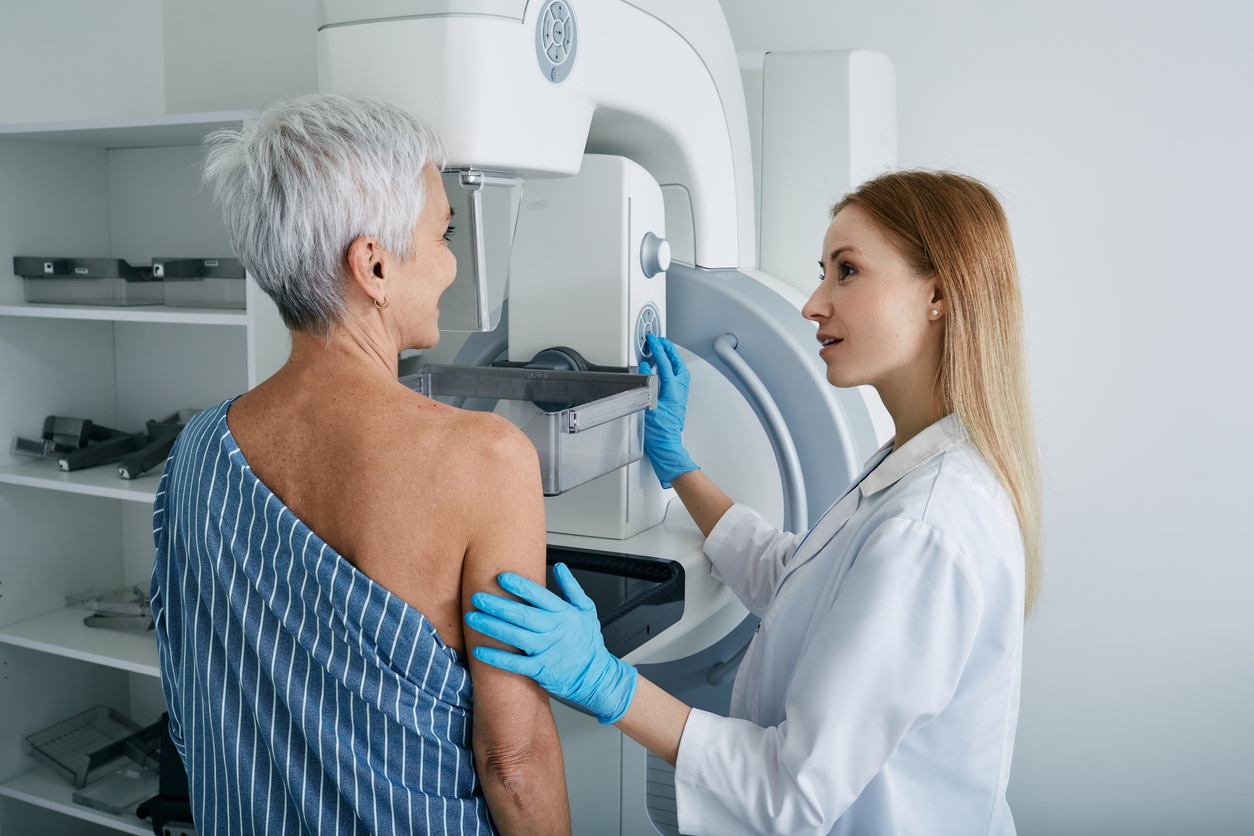The Latest Healthcare News
Check out our blog to learn more from our team about the latest medical advancements, health tips, and primary care news.

Breast cancer is one of the most common cancers affecting women, but with early detection and expert care, it’s also one of the most treatable. Whether you’ve found a lump during a self-exam or received an abnormal result from a screening, it’s natural to feel overwhelmed. Our primary care providers are committed to supporting you through every stage of your breast health journey.

Early detection is one of the most powerful tools in the fight against breast cancer. That’s why we make it easy to access the right tests at the right time—whether you’re experiencing symptoms or staying on track with routine screenings.
At AllCare, we offer a supportive and streamlined approach to breast cancer testing. Our team can guide you through every step, from scheduling a mammogram to coordinating follow-up care like ultrasounds or referrals to specialists, if needed. No matter where you are in your health journey, we’re here to ensure you get timely answers and compassionate care.
Breast cancer happens when cells in the breast grow out of control. These abnormal cells can form a lump or tumor and may spread to other parts of the body, in some cases. Most breast cancers start in the milk ducts (called ductal cancer) or the glands that produce milk (lobular cancer). Some grow slowly, while others are more aggressive. Both women and men can get breast cancer, but when it’s found early, it is highly treatable.
Breast cancer symptoms may be subtle or mistaken for other women’s conditions. That’s why regular breast screenings are essential. Common symptoms include:
If you notice any of these signs, book a breast exam as soon as possible.

A doctor or nurse will manually examine your breasts and underarms for lumps, thickening, or other unusual changes. This is often done during your routine physical and helps identify any potential issues that may need further testing.

We offer referrals for mammograms and ultrasounds. A mammogram is a low-dose X-ray of the breast that can reveal early signs of cancer, even before a lump can be felt, while an ultrasound uses sound waves to create images of breast tissue.

If you are diagnosed with breast cancer, we’ll refer you to an oncologist for the next steps. Our primary care doctors are here to support and guide you as part of your healthcare team.

Breast cancer can affect anyone, but certain individuals are more likely to benefit from early screening and evaluation, including:
If you fall into any of these categories or have concerns about your breast health, schedule a breast exam today.
A breast self-exam is a simple way to stay familiar with how your breasts normally look and feel so you can spot any changes early. It only takes a few minutes and can be done once a month, ideally a few days after your period ends (when breasts are less tender).
If you notice anything unusual, don’t panic – contact your primary care provider. Most changes are not cancer, but early evaluation can give you peace of mind and ensure the best possible care if something needs attention.
Breast cancer isn’t entirely preventable, but there are steps you can take to lower your risk. Some risk factors—like age, gender, and genetics—can’t be changed. However, lifestyle choices such as maintaining a healthy weight, staying physically active, limiting alcohol, and avoiding tobacco can help reduce your risk. For people with a high genetic risk, preventive options like enhanced or early screening, medication, or even preventive surgery may be recommended. Regular breast check-ups and mammograms are also vital to catching breast cancer early when it’s most treatable.
Yes, breast cancer is often curable, especially when detected early. Many people diagnosed with early-stage breast cancer go on to live long, healthy lives after receiving treatment. The chances of a cure depend on several factors, including the type of breast cancer, how early it’s caught, and how well it responds to treatment. Localized breast cancer (confined to the breast) has a very high survival rate, often over 90%, with proper care.
Breast cancer happens when cells in the breast grow uncontrollably, often forming a lump or mass. While there’s no single cause, several risk factors can increase the likelihood of developing breast cancer:
Most women should start getting annual mammograms at age 40. This is the age when breast cancer risk begins to rise, and early screening helps detect cancer before symptoms appear. Your doctor may recommend starting earlier, around age 30, and may also suggest additional imaging like breast MRI if you have a higher risk, such as a strong family history, a BRCA gene mutation, or prior chest radiation. After age 55, some women may switch to getting mammograms every two years, depending on their health history and provider’s guidance. Consult your primary care doctor to create a screening plan tailored to your unique risk factors.
Yes, men can get breast cancer, though it’s rare. Male breast cancer accounts for less than 1% of all breast cancer cases, but it can still be serious. Because it’s not commonly discussed, men often delay seeking care, which can lead to a later diagnosis. All men have a small amount of breast tissue, and cancer can develop there just as it can in women. Warning signs include a lump in the chest area, swelling, nipple discharge, skin dimpling, or changes to the nipple. If you notice any of these symptoms, we recommend you see a men’s health doctor as soon as possible. Early detection greatly improves the chances of successful male breast cancer treatment.
If you’ve received an abnormal breast exam or mammogram result, your best next step is to follow up with your primary care provider or gynecologist, not immediate care. Both primary care and OB-GYN providers are trained to evaluate breast health concerns and can help coordinate additional testing, like a diagnostic mammogram, ultrasound, or biopsy.
At AllCare, we’re proud to deliver exceptional primary and immediate care to residents across Virginia, Maryland, and Washington, D.C. From bustling city centers to serene suburban neighborhoods, our clinics are strategically placed for your convenience and care. Experience top-tier breast cancer exam in your community with AllCare, where your health is our priority.
Check out our blog to learn more from our team about the latest medical advancements, health tips, and primary care news.
Seasonal Affective Disorder (SAD) represents a significant mental health concern affecting approximately 5% of adults in the United States. This […]
Read More >Mammograms save lives. Early detection of breast cancer through proper screening will give a patient a remarkable 99% five-year survival […]
Read More >Most people are aware that diet, exercise, and genetics affect cholesterol levels. But can stress raise your cholesterol? The answer […]
Read More >Our related healthcare services extend beyond immediate care to include preventive care such as routine physical exams, symptom management for women’s conditions like yeast infections, and specialty care referrals for more complex health issues.